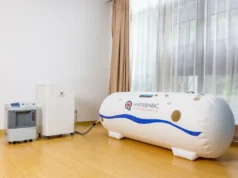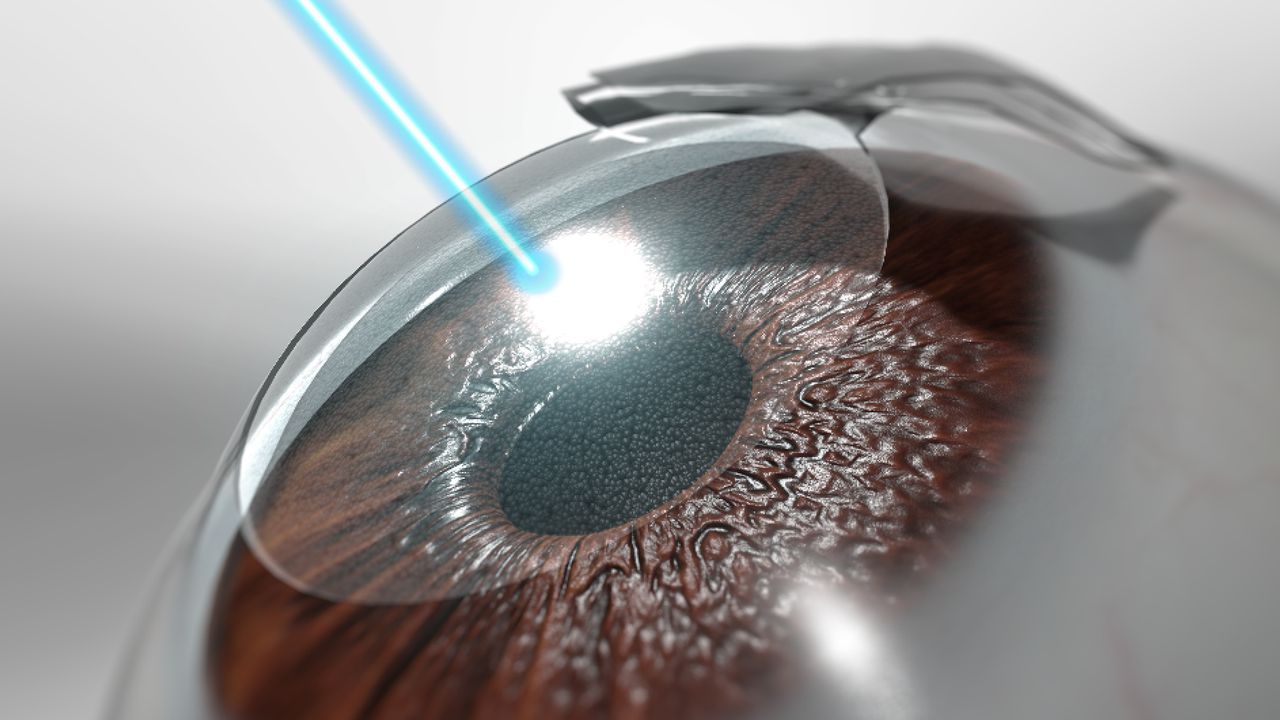
Cataracts are a common issue among older adults, smokers, individuals with previous eye injuries, or those who have spent significant time in the sun. Surgery is currently the only treatment for cataracts. Fortunately, cataract surgery has become extremely routine and can take as little as 10 minutes. While some patients may experience clearer vision in just hours, a complete recovery can take up to four weeks or more, depending on the individual. During the recovery period, it is particularly important to listen to your surgeon’s advice. Many patients ask why our doctors tell them they should avoid sleeping on their side after cataract surgery. Allow us to explain that here!
In addition to outpatient advice, your doctor will provide you with a protective eye shield following cataract surgery. Because a person’s risk of infection will be higher following any type of surgery, it is extremely important to wear your eye shield, even when you sleep. In addition to wearing your eye shield at night, you will also want to avoid sleeping on the side that has been operated on. By reducing irritation, you can decrease your risk of infection and speed up your recovery process. This is why your doctor tells you not to sleep on your side after cataract surgery.
Activities To Avoid Following Cataract Surgery
You will want to avoid touching your eyes directly after cataract surgery, along with the following activities:
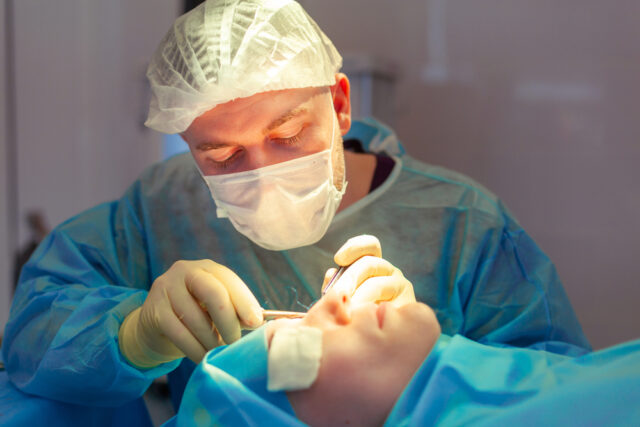
Strenuous Exercise And Heavy Lifting
Exercise and heavy lifting can put pressure on your eyes. It’s fine for you to walk and to do very light physical work after your surgery, but most doctors recommend that you not bend over or lift objects for at least 24 hours after the surgery. They recommend that you avoid lifting and strenuous exertion completely until your eyes have healed.
Cooking
As with any surgery, your body is going to experience fatigue during your recovery time. For many, that fatigue has led to difficulty in finding the energy to cook regularly, or at all. Cooking may also expose your eyes to steam or splatters of food or oil. If you like to cook, it’s wise to plan and prepare several days’ worth of meals before your surgery. If you don’t like to cook, purchasing pre-cooked meals before your surgery can save you a lot of unwanted stress.
Swimming Pools And Hot Tubs
Next to rubbing and touching your eyes frequently, getting into a swimming pool is perhaps the next worst thing you can do if you’re trying to prevent infections. The bacteria and chemicals in both public and private swimming pools are simply not good to have near eyes recovering from surgery. Swimming is to be avoided, as is lounging in a hot tub or sauna.
Wearing Makeup
This may go without saying, but you will want to avoid applying makeup directly. Your eyes are more sensitive to infection during this time, and makeup (especially previously used makeup) can be a hotbed of bacteria. Additionally, the chemicals used to remove makeup can be harsh and are not good to have around an eye that is recovering from recent cataract surgery.
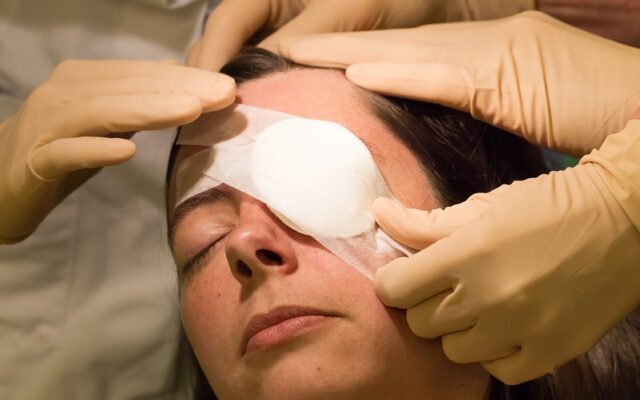
Sleeping After Cataract Surgery
As with any healing process, sleep is an essential part of recovering. While you may have little control over the way you sleep, there are a few things you should do to avoid irritating your eye at night. Your surgeon will provide you with a protective eye shield following surgery. The protective eye shield will protect your eye from irritants, including contact with the eye. Depending on your particular needs, your surgeon may advise that it is okay to remove the shield within as little as just a few hours following your procedure. However, you will need to wear your protective eye shield while you sleep for at least the first several days after your surgery.
It will also help to avoid sleeping on the same side that you have had surgery on. In general, you will want to do as little as possible to avoid irritating your eye. This includes rubbing and contacting your eye – even with your pillow. By sleeping on your back or the opposite side, you may be able to decrease your risk of infection. However, the eye shield can provide backup protection for those who are unable to avoid sleeping on a certain side.
Click here and learn how Austin eye surgeon can help.
Are There Side Effects Of Cataract Surgery?
Cataract is the world’s most common surgery. It is also one of the safest, with the vast majority of patients seeing (literally) positive outcomes. Outside of initial blurriness and dry eyes, side effects are infrequent and rarely threatening.
However, patients may experience a few side effects. These are very rare and are typically caught during post-operation checkups.
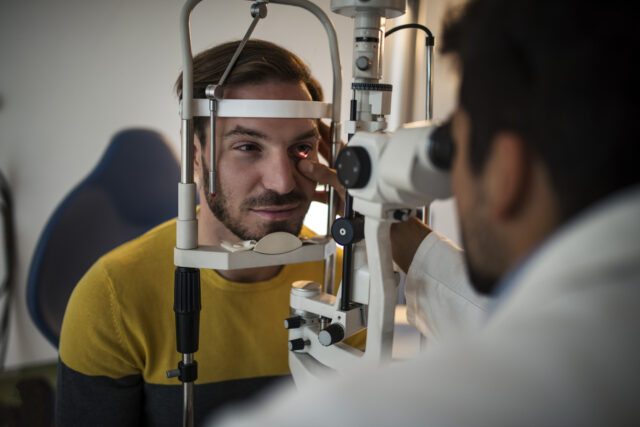
Endophthalmitis
Blurriness is sometimes indicative of a complication called endophthalmitis. Endophthalmitis is an inflammation of the eye’s interior, caused most frequently by an eye infection. Endophthalmitis is typically treatable with additional surgery and antibiotics.
Posterior Capsular Opacification (CPO)
Posterior capsular opacification, often called a “secondary cataract” is another type of clouding of vision after cataract surgery. This complication is typically treatable with laser
Shield Yourself From Irritants Or Trauma
When you come home from surgery, it’s natural to feel like something is in your eye, like an eyelash or particle of sand. The eyes can be sensitive to the environment for at least a week after surgery. Wraparound sunglasses will not only protect you from exposure to dust, dirt, and pollen but also help with sensitivity to light. Your doctor will also provide you with a shield for you to wear while sleeping during this recovery time, to eliminate touching or rubbing of your eyes.
Keep Out Of The Pool, And Shower Carefully
Exposure to water can put you at risk of infection or irritation until your eye has healed completely. Give yourself at least one night of sleep before showering, and prevent the stream of water from hitting directly. Ask your doctor when it is safe to begin swimming or using a hot tub. In most cases, that will be a few weeks.
If you would like additional tips to make the face-down position more comfortable after the surgery, do not hesitate to reach out to the team of professionals. Call or email today.






